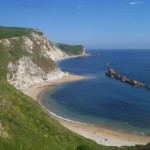 It’s often said that we know less about the bottom of our oceans than we do the surface of the moon. Sayings such as that typically refer to the super deep parts of the planet, such as the Mariana Trench in the Pacific, which is said to be nearly 11km deep. It applies just as much to some seemingly better known waters however.
It’s often said that we know less about the bottom of our oceans than we do the surface of the moon. Sayings such as that typically refer to the super deep parts of the planet, such as the Mariana Trench in the Pacific, which is said to be nearly 11km deep. It applies just as much to some seemingly better known waters however.
Take the British coast for instance. It turns out that we don’t really know just how deep large chunks of our coastal waters are, which is far from ideal for those earning their living in them. Step forward a new project funded by the European Community that is turning to those very people to help deepen our understanding of the deep.
The project, called Teamsurv, equips any willing boat with data loggers that will record the depth of the ocean as the boat is sailing about. The hope is that by employing hundreds of participants, it will get the job done in a fraction of the time (and no doubt a fraction of the cost) that would normally be required. Another nice touch is that all data from the project will be freely available.
Of course, this isn’t the first project of this sort that has engaged citizens in scientific work in the deep. Plankton Portal is arguably the most well known.
The site was developed under the leadership of Dr. Robert K. Cowen, UM RSMAS Emeritus Professor in Marine Biology and Fisheries (MBF) and now the Director of Oregon State University’s Hatfield Marine Science Center, and by Research Associate Cedric Guigand and MBF graduate students Jessica Luo and Adam Greer.
There are millions of images of plankton taken by the In Situ Ichthyoplankton Imaging System, which is an underwater robot designed by the University of Miami. Many more images than can be processed by professional oceanographers.
“ISIIS gives us a new view on plankton, enabling us to see them in their natural setting, where they occur, what other organisms are nearby, even their orientation,” explains Cowen.
Hopefully projects such as this will help render the remark about our relative ignorance of the oceans a thing of the past.